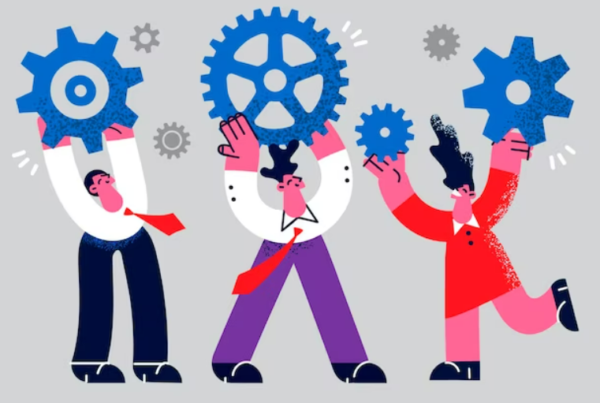1. Your team is stuck in a rut
We all have preferred methods for cooperating and relating to others (these are known as Team Roles), but occasionally we might develop rigid habits.
When this occurs, we forfeit the chance to develop and learn. Belbin not only identifies your preferred Team Roles but also your “manageable Roles”—latent strengths that call for you to venture a little outside of your comfort zone—and provides guidance on how to grow them to your greatest advantage.
2. A lot of your employees are acting outside of their roles
On the other side, it is feasible to work in least desired roles, or behaviours that are not natural to you, for an extended period of time. This may occur if a team role vacuum cannot be filled by another team member.
Employee morale and engagement are likely to decline over time as a result, not to mention that it may weaken the Team Role strengths that are being underutilised.
Working outside of one’s function on occasion is unavoidable, but try to express the reasons why, how long it will likely last, and what long-term support can be offered to help solve the issue.
3. One individual is taking up all the slack
Belbin can occasionally show you how much your team depends on a single member to make a certain contribution on their behalf. One pair of shoulders are under a great deal of strain. Furthermore, the issue gets worse if that role is just tolerable.
Depending on the Team Role, a little goes a long way, but it’s important seeing whether that person is feeling the pressure and having a backup plan ready for when they’re not available.
4. The environment at work needs to be improved
Everybody has a different idea of what makes for an ideal atmosphere.
Plants and Specialists may want solitude and peace in order to generate original thoughts or devote their full concentration to a task at hand. On the other side, teamworkers and coordinators need to communicate with others frequently. Additionally, resource investigators must leave the office because trying to tether one to a desk is the quickest method to make them disappear.
Try your best to make sure that everyone receives what they require from the workplace, even if that involves rearranging things a little.
5. The same “territory” of work is the source of conflict for your people
The inverse is also true: combining too many of the same Team Roles will only lead to failure.
This issue is more likely to affect Specialists (who can be possessive of their field), Shapers (who don’t back down from a fight), and Plants (who will become entrenched in pursuing their own ideas).
The number of Plants and Shapers on each team should be kept to a minimum. Make the boundaries clear so that each person has their own space to increase Specialist engagement.
6. You’ve got the wrong people working together
A good balance of Team Roles is essential for successful teams. The relationship is even more crucial in couples since any kinks are likely to be worsened by a lack of or insufficient personal chemistry.
Try to pair up individuals with complementary strengths, but also seek for a team role in common because a shared approach helps foster understanding.
7. Your teams are too big
According to Amazon CEO Jeff Bezos, if there are more than two pizzas present at the meeting, the team is too large.
Four people make up the ideal team size according to Dr. Belbin; any more causes delays and prevents crucial decisions from being made. Maintaining the numbers even necessitates that decisions be decided by a majority vote rather than a single casting vote.
8. Rather than using team roles, you’re building teams based on function
Regardless of function, think about switching things up if you know someone has a crucial Team Role contribution to make.
Building a team from scratch may not always be viable within a company’s organisational structure, but you can use Team Roles to include the appropriate individuals. Use team roles to balance your new teams when you have the chance to form them, keeping in mind that not all roles are necessary at all times.
9. You’re wasting people’s time
It takes a fine balance to create project teams. If you add a critical person too late, the team can end up hurrying to redo work at the end. If you incorporate too many people too early, development will be excruciatingly sluggish.
As a general rule, provide Co-ordinators and Shapers the authority to decide on objectives and oversee individuals and procedures. Bring in Monitor Evaluators and Specialists to help analyse plans and offer professional guidance after starting with Plants and Resource Investigators to produce concepts and place them within the market. To complete the work, you’ll need Implementers, Teamworkers, and a Completer Finisher to double-check everything. To learn more about Belbin, project teams
10. People are afraid to make things worse, so they can’t effectively express what’s wrong
It’s simpler to recommend that someone handle their non-permissible Shaper flaws than to insinuate that they are hostile.
Belbin is a worldwide language for improving oneself, fostering teamwork, and resolving disputes. Understanding team role behaviours enables individuals to maximise their talents, minimise their flaws, and improve teamwork.
Next Steps
Get in touch with us to learn how Belbin can help your team combat negativity.




